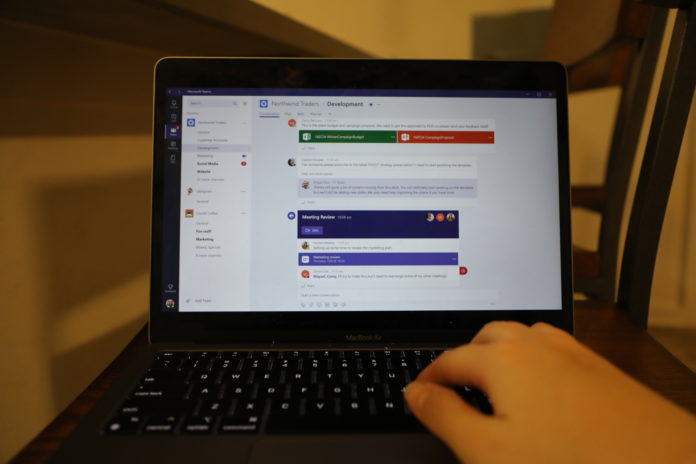
By Matt Kyle | Staff Writer
While some faculty members said they have experienced difficulties following the transition from traditional landlines to the Microsoft Teams Call platform last semester, Jon Allen, chief information officer and chief information security officer, said via email the vast majority of feedback he has received has been positive.
“The feedback that was more critical typically was the result of a misunderstanding with how Teams Calling worked,” Allen said. “Prior to the pandemic, I would have been run from campus for proposing a primarily software-based phone solution that leveraged minimal handsets. Ironically, the most common feedback I get now, nearly two years into the pandemic, is from campus faculty and staff asking why this change wasn’t made years ago.”
Allen said Teams is different from landlines because Teams integrates phone calls with chat, email and voicemail.
Allen said the transition was needed due to both COVID-19 and outages of the old phone system.
“The last two years with COVID highlighted the need for communications solutions that could work from anywhere as well as from multiple devices,” Allen said. “Traditional phone systems were generally limited to physical phones plugged into campus lines. In October of 2021, Baylor experienced a significant outage of the Nortel phone system. This multi-day outage highlighted the brittleness of the current telephony solutions and the need to move rapidly to a modern reliable platform for campus.”
Tashi Flaig, administrative associate in the English department, said there were some initial issues adjusting to Teams, but adjusting to the new system did not take long.
“At first, it was strange to not have a physical phone to pick up,” Flaig said. “Our initial reaction was, ‘Another new change?’ I think we were all caught off guard, but it was a fairly simple transition — not a huge deal.”
Flaig said some faculty members have had difficulty getting used to the new system and are instead using their cell phones to make calls.
Dr. David Clinton, professor and chair of the political science department, said he was surprised the change to Teams happened so quickly.
“I would have thought the users would be given more time to adjust to it and receive any training that was necessary for it,” Clinton said. “I have had the impression that some faculty are just not making or receiving phone calls in their offices. They’re avoiding this problem. They haven’t had that much experience with the new system because they use alternate means.”
Allen said Baylor ITS has been working to provide faculty with training to fully understand how to use Teams. He encouraged any faculty experiencing difficulties with the platform to reach out to the ITS HelpDesk at 254-710-4357.
Dennisse Concepcion, administrative associate in the journalism, public relations and new media department, said she believes Teams is easier and more convenient than the old landlines due to the ability to use wireless headsets.
“It’s very convenient because we can walk away and continue talking to the person,” Concepcion said. “If someone is calling for a professor, we can walk directly to their offices.”
Concepcion said her department was initially hesitant to switch due to familiarity with the old phone system, but the change to newer technologies is necessary. She also said she likes Teams because of the multiple ways to use the platform.
“We have to be ahead of technology,” Concepcion said. “I know some people don’t like the changes, but you have to practice and do it. [Teams] is very convenient. It’s everything on one system. If you have a meeting, you use Teams. Phone calls, if you’re outside, you can set up Teams to your phone. For us, it’s just easy.”




